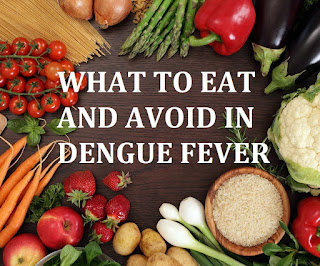
Symptoms typically start three to two days following infection. This might incorporate a top fever, aggravation, nausea, muscle and joint pains, plus a feature skin rash. Dengue is spread by several species of a shrub of this Aedes kind, chiefly A. Egyptian. The virus contains five unique types; disease with one form generally gives lifelong resistance to this way, but the only temporary strength to the others. The following illness to another kind raises the risk of severe complications.
Lots of evaluations can be found to confirm the identification including discovering Compounds into the virus or its RNA. A publication vaccine for dengue fever was approved and is commercially available in a lot of states. Other techniques of avoidance are by decreasing mosquito habitat and restricting exposure to snacks.
This might be accomplished by eliminating or covering standing water and wearing clothes that cover a lot of the body. Treatment of severe hepatitis is reassuring and includes lending fluid either by mouth or intravenously for the moderate or mild illness. For more severe cases blood transfusion could be deemed necessary. Approximately half a million people need admission to the hospital per year. Nonsteroidal anti-inflammatory medications (NSAIDs) such as aspirin shouldn't be used.
What to Eat and What to Avoid in Dengue
- More Fluid Intake: Maximum ingestion of fluid is the very first matter to incorporate in the daily diet for dengue patients. It is a good idea to contain nutrient-rich fluids besides liquids like ORS, sugar cane juice, tender coconut oil, carrot juice, fresh orange juice and assorted fruit juices. Drinking a lot of fluids assists in eliminating toxins from your system.
- Diet rich in protein: Dairy products, poultry, eggs, and fish are highly recommended foods for dengue patients to combat the dengue virus. Proteins must be contained in the diet once the fever subsides slowly as protein rich diet will help in rapid recovery and helps to regain the lost nutrients necessary for your system.
- Papaya acts as Traditional Medicine: Many times, people in remote areas rely on traditional medications or home remedies to cure many diseases. Juice extracted from papaya leaf is one such example which is known to be a beneficial natural treatment for dengue fever.
- The Vegetarian diet: After fluid ingestion, most significant improvements from the menu for dengue patients are nearly some vegetables, especially the fresh leafy veggies.
- No hot and oily food: Not just such food gets problematic for digestion, but fever may have aggravated too.
- Contain sauces and boiled food: Patients suffering from dengue generally do not like to consume much good food. In these circumstances, mild sauces can be contained so that minerals, vitamins, protein levels are preserved. If needed, mashed boiled meals could be given with minimal seasoning.
- Tea with Ginger: Finally, among those most effective foods for dengue patients is tea blended with green herbs. Ginger tea is the most effective owing to its various medicinal properties.
Healthy Food Diet For Dengue Patients
- Orange: Oranges are filled with essential vitamins and nutrients. The high-quality material of oranges makes them great for treating indigestion also. Insert this succulent and succulent fruit into your diet now if you would like to reach the road to recovery soon.
- Papaya: Other studies conclude that papaya activates quicker platelet generation in dengue patients. All you will need to do is crush a few papaya leaves and drink its juice twice per day to conquer the dengue blues.
- Porridge: The yummy cereal or Dalia (the Indian name for this), is a favorite breakfast choice all over the world. Its high nutrient and fiber worth making sure that you receive the sufficient strength to resist the disease. Porridge is easy to consume and digest also. Don't forget to eat a good deal of oatmeal whenever you're down with dengue.
- Prevent Oily Food: Some of the principal indicators of dengue is gut issues. Be sure to don't keep eating fatty and spicy food since it's only going to worsen your problem.
- Herbal Tea: Herbal teas can decrease the signs of dengue fever. Pick flavors such as cardamom, ginger or peppermint. Ginger has anti-inflammatory and antioxidant features that help reduce the dengue fever. The plant develops throughout Southeast Asia.






No comments:
Post a Comment